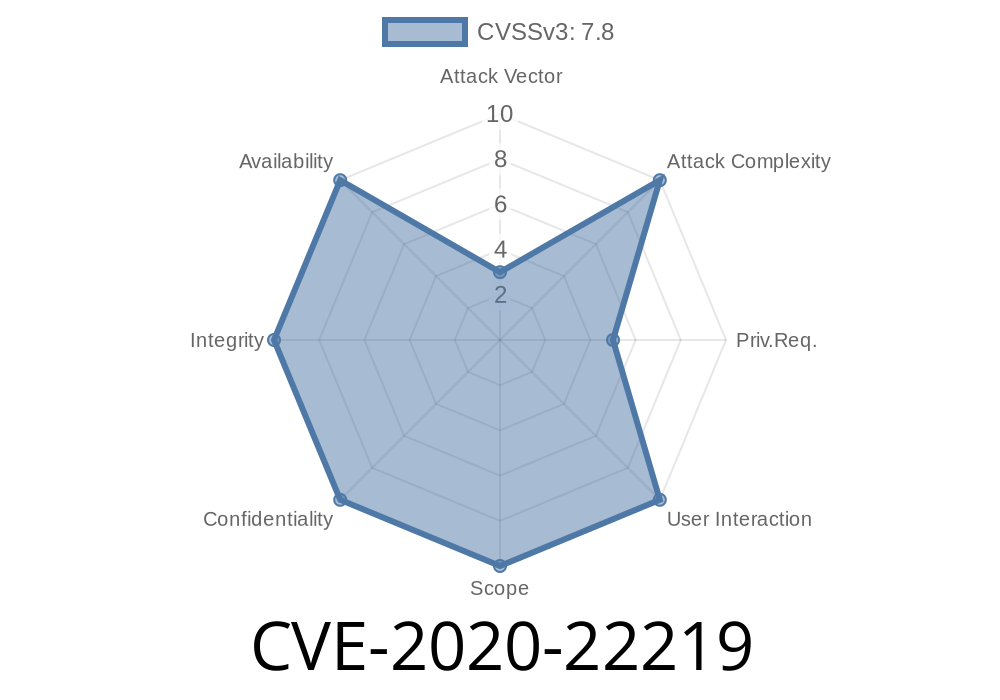The Buffer Overflow vulnerability is a common security issue that occurs when a program or a process tries to store more data in a buffer than it was intended to hold, leading to corrupting or overwriting adjacent data in memory. In more severe cases, this could lead to arbitrary code execution or crashes. This post discusses a specific Buffer Overflow vulnerability, CVE-2020-22219, which was found in earlier versions of FLAC (Free Lossless Audio Codec) before 1.4..
Vulnerability Description
CVE-2020-22219 is a Buffer Overflow vulnerability in the bitwriter_grow_ function in FLAC before 1.4.. This vulnerability allows remote attackers to execute arbitrary code by providing a malicious input to the encoder.
Affected Software and Versions
This vulnerability affects FLAC versions earlier than 1.4.. FLAC is a popular lossless audio codec and is widely used in many applications and libraries related to audio processing.
The vulnerable function bitwriter_grow_ is defined as follows in stream_encoder.c
static FLAC__bool bitwriter_grow_(FLAC__BitWriter *bw, size_t bits)
{
...
bw->capacity = (uint32_t)((bits + bw->caps_extension - 1) / bw->caps_extension) * bw->caps_extension;
...
}
This function attempts to re-allocate memory in the case when bits is too large, it's growing the capacity of the buffer by increments of bw->caps_extension. However, due to a lack of input validation or boundary checks, if an attacker can control the value of bits, they can cause a buffer overflow and potentially execute arbitrary code on the target system.
Exploit Details
A successful exploit requires crafting a malicious input that will trigger the buffer overflow vulnerability in the bitwriter_grow_ function. This can be done by controlling the bits input value so that it leads to allocating less memory than expected, causing subsequent operations to overwrite adjacent memory.
Once the memory corruption is achieved, an attacker can potentially take control of the program's execution flow. The severity of this vulnerability depends on the context in which the FLAC library is used. In some cases, it might only lead to a crash, while in others, it could allow arbitrary code execution with the privileges of the user running the vulnerable application.
Mitigation and Remediation
The vulnerability has been fixed in FLAC version 1.4., where input validation has been implemented to prevent such buffer overflow issues. Users are advised to upgrade to the latest version of the library to protect their systems from possible attacks.
For users who cannot immediately update, it is crucial to validate inputs and sanitize them before passing them to the affected library functions. Proper memory management and handling of exceptions can help minimize the risks associated with this vulnerability.
References
1. Original Source & Details: https://cve.mitre.org/cgi-bin/cvename.cgi?name=CVE-2020-22219
2. Latest FLAC version: https://xiph.org/flac/download.html
3. Additional information on Buffer Overflow: https://owasp.org/www-community/vulnerabilities/Buffer_Overflow
Timeline
Published on: 08/22/2023 19:16:00 UTC
Last modified on: 09/25/2023 12:15:00 UTC
